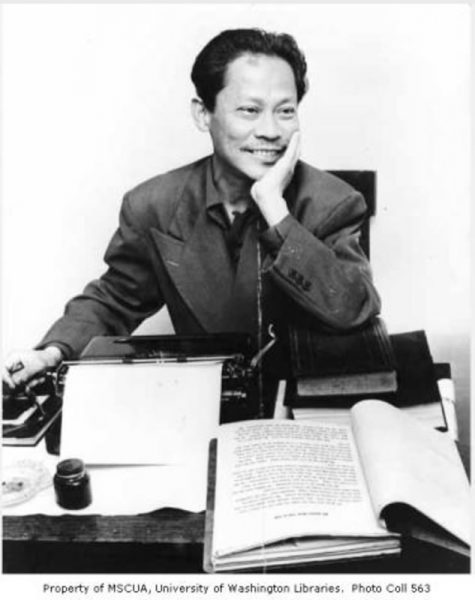
“The human heart is bigger than the world.” ~Carlos Bulosan
Carlos Bulosan was born in 1911 in the Philippines, although his actual year of birth is uncertain. He left the Philippines for America, arriving in Seattle around the age of 16/17. His goal was to escape the poverty and economic turmoil of the rural farming village he grew up in, to help support his family and further his education. When Bulosan arrived however, he barely spoke English and hardly had any money left.
In America, Bulosan was only able to find menial jobs harvesting in the fields, washing dishes, and working at Alaskan canneries. During this time, he suffered racism, economic distress, hunger, and illness. His experience of discrimination and poor working conditions led him to participate in union organizing with other Filipinos and various workers. He became involved in the labor movement, and helped edit the 1952 Local 37 Yearbook for the International Longshore Warehouse Union, a Seattle-based union that mainly involved Filipino American workers.
These experiences led to Bulosan’s 1946 semi-autobiographical novel America is in the Heart. The Pacific Northwest Quarterly says this “gripping memoir-novel of a young Filipino immigrant long ago secured its place in Asian American literature…[Bulosan’s] call to action resonates with the same urgency today as it did seven decades ago.”
“We in America understand the many imperfections of democracy and the malignant disease corroding its very heart. We must be united in the effort to make an America in which our people can find happiness. It is a great wrong that anyone in America, whether he be brown or white, should be illiterate or hungry or miserable.” ~ from America is in the Heart
During his life, he wrote other books and essays, dealing with the Filipino narrative and the labor movements in America, but America is in the Heart still gains recognition for the voice it gave to immigrant workers and the Asian/Filipino perspective.
The Postcolonial Studies department at Emory describes America is in the Heart as something that “continues to hold weight in literary discussions on Filipino American identity today.” Even though Bulosan died in 1956, his stories remain as a touchstone for many Filipino Americans today.